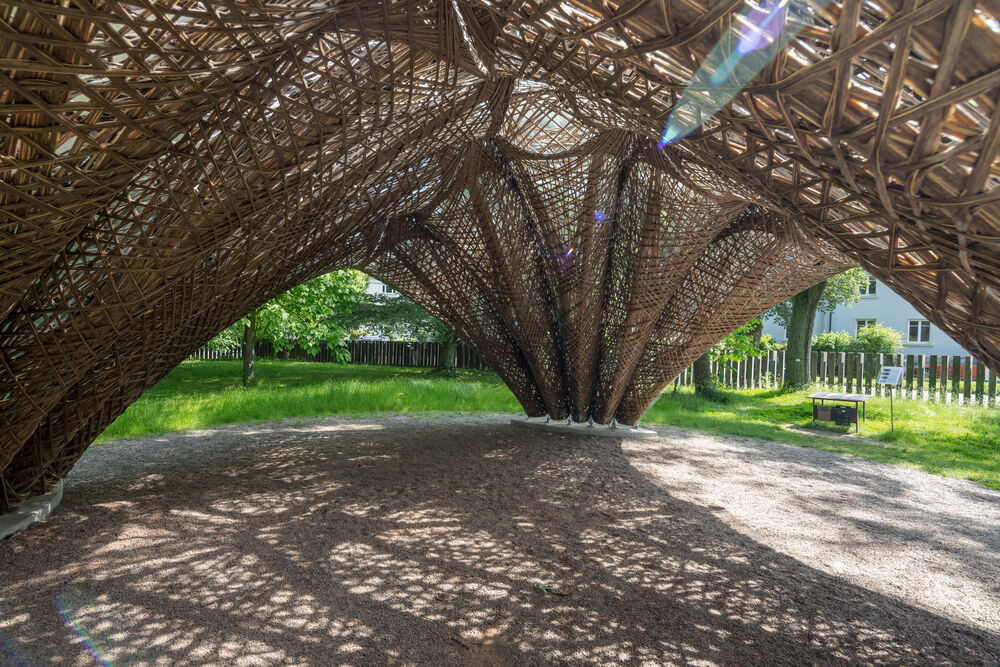Interdisciplinary facilities and other structures
… of the research fields in ‘Pathways to Sustainability’:
New Materials and Substances
Intelligent Technologies
Ecological and Socio-ecological Systems of the Future
Collaborations
… of the research fields in ‘Pathways to Sustainability’:
New Materials and Substances
Intelligent Technologies
Ecological and Socio-ecological Systems of the Future
Fraunhofer Ernst Mach Institute (EMI)
Fraunhofer Institute for Applied Solid State Physics (IAF)
Fraunhofer Institute for Physical Measurement Techniques (IPM)
Fraunhofer Institute for Solar Energy Systems (ISE)
Fraunhofer Institute for Mechanics of Materials (IWM)
Selected collaborative projects and individual funding
… of the research fields in ‘Pathways to Sustainability’:
New Materials and Substances
Intelligent Technologies
Ecological and Socio-ecological Systems of the Future
Cluster of Excellence EXC 2193: Living, Adaptive and Energy-autonomous Materials Systems (livMatS)
RTG 2717: Dynamics of Controlled Atomic and Molecular Systems
Emmy Noether Junior Research Group: Layered and Two-Dimensional Transition Metal Dichalcogenide Devices for Flexible Electronics and Energy Harvesting
RU 5099: Reducing Complexity of Nonequilibrium Systems
Carl Zeiss Foundation: Interactive and Programmable Materials (IPROM)
Carl Zeiss Foundation: Multiscale characterization of robust functional material systems (SCHARF)
Vector Foundation: Junior Research Group “Die Solarzelle der Zukunft”
Volkswagen Foundation: In-Situ Electrochemical Transmission Electron Microscopy
BMBF: NanoMat Futur Nachwuchsgruppe MatrixPrint
ERC Starting Grant: MULTIPLEX – Multidimensional interferometric photoelectron spectroscopy with extreme ultraviolet photons
ERC Starting Grant: Developing Roles for Phosphates Outside of Biology: A Systems Chemistry Approach Towards Abiotic Phosphate Fuels
ERC Advanced Grant: InnoChem – Innocent Deelectronation Chemistry – From the unified redox scale valid in all solvents to innocent deelectronation chemistry in innocent solvents
ERC Consolidator Grant: Glycan Mimetics for Cell Glycocalyx Reconstitution: a polymer chemist’s approach to fight infection (GLYMCE)
ERC Consolidator Grant: CaLA – The Capillary Lock Actuator: A novel bistable microfluidic actuator for cost-effective high-density actuator arrays suitable for large-scale graphical tactile displays
ERC Consolidator Grant: Photonic metasurfaces for resource-efficient ultrathin high efficiency tandem solar cells (PHASE)
RTG 2123: Conservation of Forest Biodiversity in Multiple-Use Landscapes of Central Europe (ConFoBi)
Emmy Noether Junior Research Group: Phenology of tropical tree species – environmental cues, molecular mechanisms, and consequences for plant-animal interactions
RU 5281: Multi-Trophic Interactions in a Forest Biodiversity Experiment in China
RU 5315: FOREST FLOOR. Functioning, Dynamics, and Vulnerability in a Changing World
DFG PP 2237: MAdLand – Molecular Adaptation to Land: plant evolution to change
DFG PP 1685: Ecosystem Nutrition. Forest Strategies for Limited Phosphorus Resources
INTEGRA: Integration of habitat structures into agricultural land to promote insect pollinators (BMEL)
BMBF: Carbon Dioxide Removal Options: Policies and Ethics (CDR-PoEt)
Young Academy for sustainability research (YAS)
ERC Synergy Grant: urbisphere – coupling dynamic cities and climate
EU Project: CircoMod – Circular Economy Modelling for Climate Change Mitigation – Collaborative Project (CP)
EU-Project: MixForChange – Mixed Forest plantations for climate Change mitigation and adaptation


